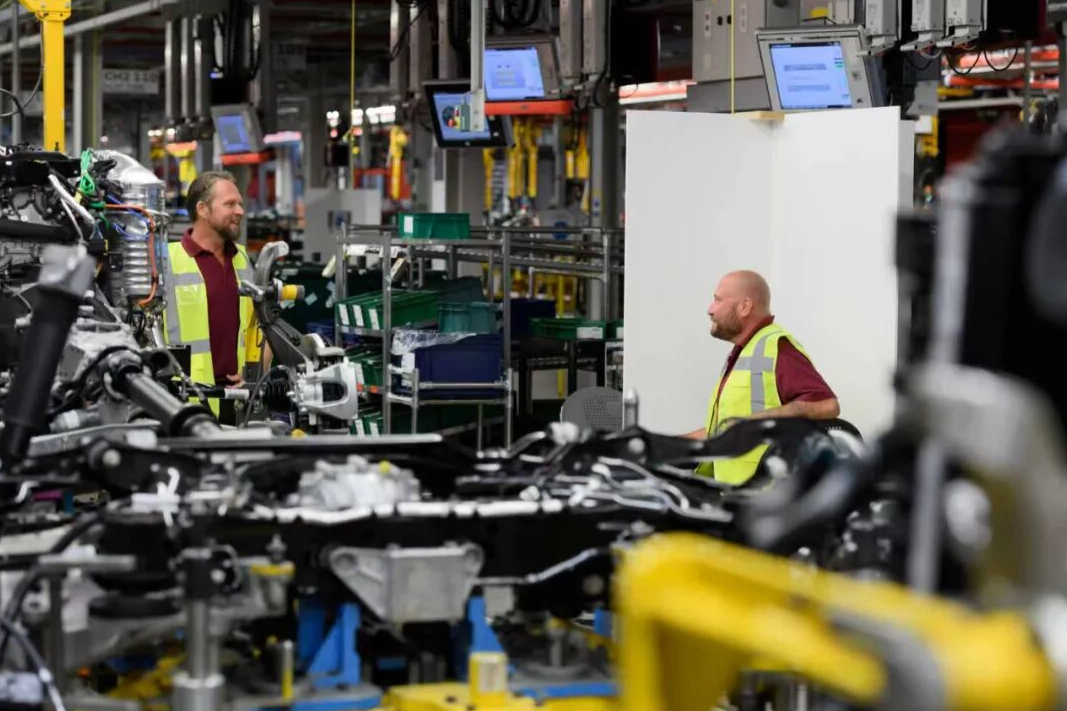Last month, Jaguar Land Rover, the largest automotive manufacturing enterprise in the UK, announced at the beginning of the month that it had halted production due to a cyber - attack. On September 23rd, Jaguar Land Rover declared that the production halt would be extended until October 1st. It is understood that the UK government may intervene due to concerns about the impact of the shutdown on the UK economy.
The cyber - attack targeting Jaguar Land Rover occurred at the end of August. September 1st is the registration day for new vehicle licenses in the UK, which is one of the busiest days in the automotive industry each year. Hackers launched the attack at this critical moment, aiming to maximize the impact of the crisis on Jaguar Land Rover.
On September 2nd, Jaguar Land Rover officially confirmed that it had suffered a cyber - attack. Approximately 33,000 employees at its three UK factories were required to stop work starting from the end of August. Meanwhile, the company was forced to shut down its information technology systems, causing multiple global production lines to come to a standstill. Production lines in Slovakia, China, India, and Brazil all ceased operations, and factories in the central region of the UK and Merseyside were also in a state of production halt.
A hacker group calling itself “Scattered Lapsus$ Hunters” claimed responsibility for this attack.
On September 10th, Jaguar Land Rover confirmed that the hackers had stolen some data. On September 16th, the 33,000 employees in the UK were informed that the production lines were still affected and were advised not to return to work for the time being. Production at its factories was not expected to resume until at least September 24th. A spokesperson for Jaguar Land Rover stated, “We made this (extended shutdown) decision because our investigation into the cyber incident is still ongoing, and we are in the process of planning to restart our global operations, which requires time.” The company indicated that it had been “working around the clock” to resume production since the attack on August 31st.
David Bailey, an economics professor at the Business School of the University of Birmingham in the UK, believes that the production halt at Jaguar Land Rover will impact some small enterprises in its supply chain. Some suppliers and retailers are temporarily unable to use the computer systems and databases typically used for purchasing automotive repair spare parts or vehicle registration. Some small suppliers cannot access Jaguar Land Rover's order system and are in a semi - paralyzed state. Enterprises such as Evtec and WHS Plastics, which specialize in providing components for Jaguar Land Rover, have also had to suspend their operations.
In addition, the Unite union in the UK has warned that if the company fails to resume production, its employees will face the risk of unemployment and has urged the government to introduce a furlough scheme to support them.
The losses caused by this cyber - attack to Jaguar Land Rover are also continuously expanding. Experts estimate that this incident could result in daily losses of up to £5 million for Jaguar Land Rover. If the production halt continues until November, approximately 50,000 vehicles will not be produced, and the initial impact could lead to a loss of £120 million in profits.
On September 19th, Jaguar Land Rover responded to the Chinese market, stating that the headquarters' IT team, in conjunction with third - party experts, had immediately begun to gradually restart the global systems, including the production and supply system, in a controlled and secure manner. Currently, the company is conducting real - time assessments and risk investigations regarding potential impacts on each link and has not yet affected deliveries in the Chinese market.
In recent months, many large UK enterprises have suffered attacks from cyber - ransomware. According to Reuters, while the UK government hopes to protect the security of the supply chain and employment, it also plans to ban public sectors and operators of the country's critical infrastructure from paying ransoms to cyber - extortionists. A survey by S&P Global on the 23rd showed signs of a decline in UK manufacturing output; some factories surveyed indicated that the production halt at Jaguar Land Rover would affect the activities of the automotive industry's supply chain.
Jaguar Land Rover has already faced challenges this year. Affected by the continuous uncertainty of the US tariff policy, Jaguar Land Rover has lowered its main profit - margin target for the fiscal year 2026 from 10% to 5% - 7%. In July, the company announced that its quarterly sales had declined by nearly 11% year - on - year and also declared that it would lay off 500 employees in the UK.
In a statement on the 23rd, the company said that despite the extended production halt, it was formulating a plan to gradually resume production while continuing to investigate the cyber - attack incident.
Declaration: This article comes from China Automotive News.If copyright issues are involved, please contact us to delete.
